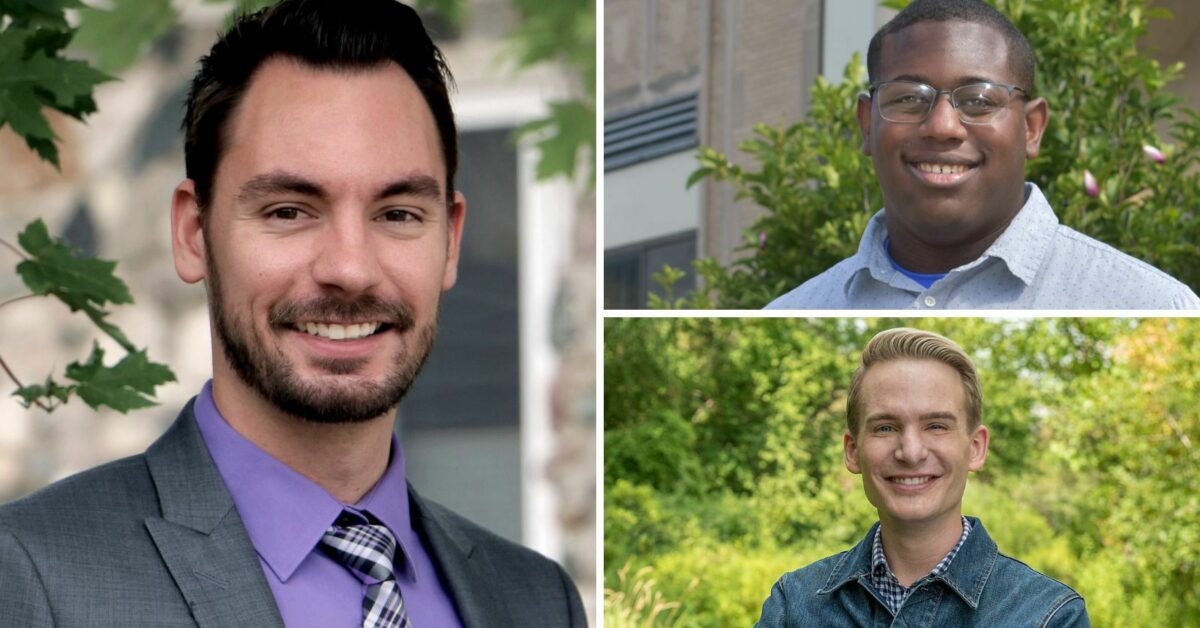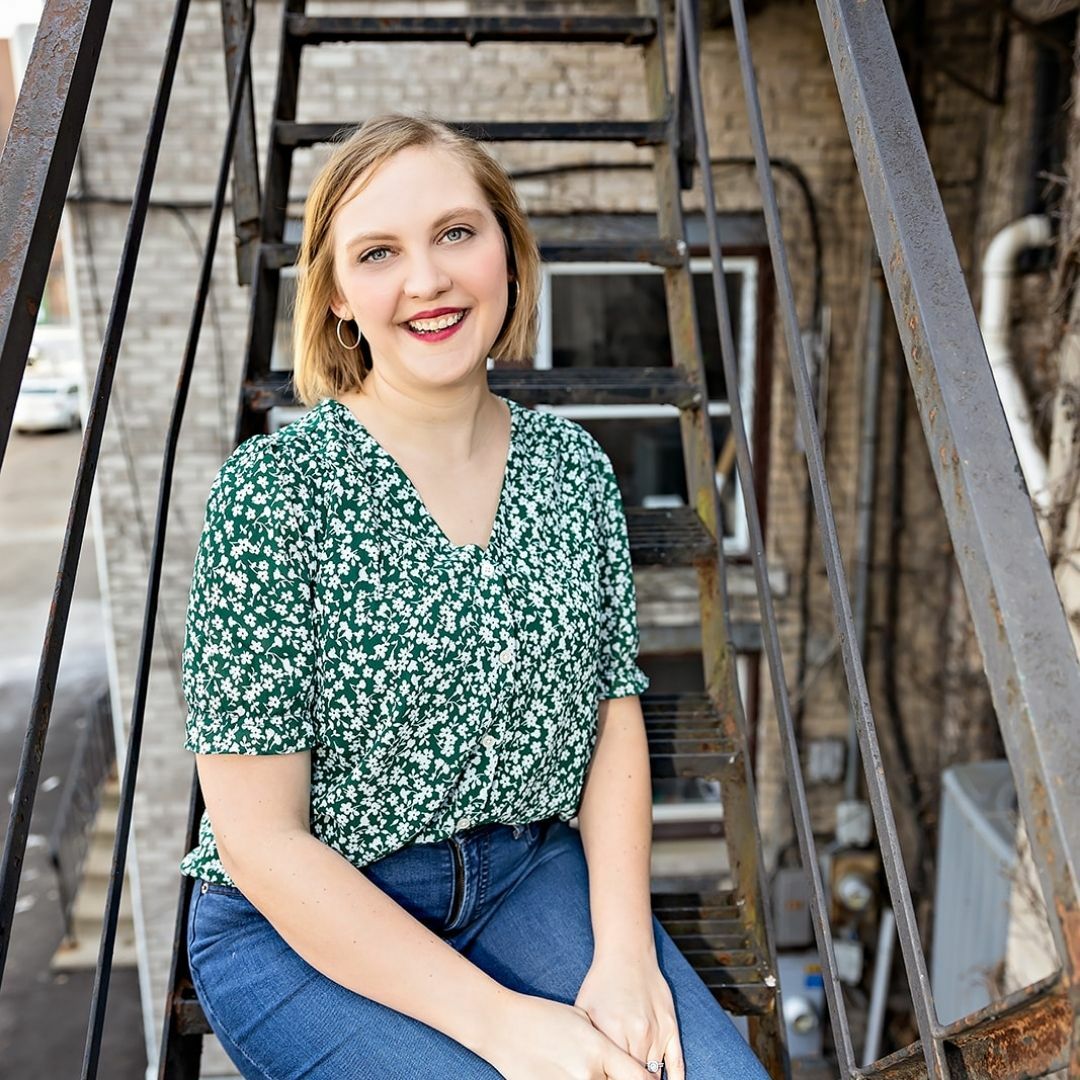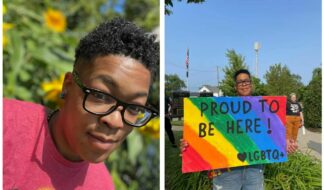Everything You Need to Know About LGBTQ+ Candidate Results in the 2023 Michigan Election
Cheers to the queers who won and to all who ran proudly

With the 2023 municipal elections in hindsight, there are some key takeaways to keep in mind when viewed through a queer lens. That’s what Pride Source found after sitting down with two openly LGBTQ+ political pundits, former Michigan Democratic Party First Vice Chair Mark LaChey and Kelsey Heck Wood, Michigan state political director of Run For Something. Each analyzed the significant queer wins and interpreted the trends.
First up is Spencer Calhoun, who won his race for city commission not too many years after being kicked out of his parents’ home for being gay. The city of Mount Clemens embraced Calhoun, who will now return the favor by serving as an elected official. Calhoun was sworn in to office on Nov. 13.
“It's remarkable that in our community, someone just like me can show up and be adopted by members in the community and by the community as a whole,” Calhoun said. “It speaks volumes how I was able this time to run openly and share with people my story, my full story and my full self, that people accepted it and related to it. And that means a lot. It's a big deal.”
Calhoun is looking forward to a more open and transparent city government that’s accessible to residents. With plans to encourage greater participation in boards and commissions, he is also intrigued with another municipality’s recent move to remove gendered language from the city charter and ordinances.
“Spencer’s victory is yet another plus for not only LGBT [people],” LaChey said, “but LGBT marginalized communities within the LGBT family and shows that with sufficient gumption, you can make anything happen.”
Mount Clemens’ soon-to-be youngest city commissioner is known well by the folks at Run For Something, an organization that recruits and supports progressives up to age 40 in local races. Calhoun was first endorsed in his 2022 school board race. Wood said Calhoun learned from that loss.

“Something that we really love and pride ourselves about at Run For Something is if you run and lose, you should run again,” Wood said. This time around Calhoun started earlier in the game. He worked hard for small donations and for the support of the community and organizations.
“And I know that he was really focused on knocking doors, as well,” Wood continued. “I think those campaign basics really paid off for him. His story is just really incredible and moving, and I'm really excited for what he's going to do for Mount Clemens.”
Another queer-friendly enclave of Macomb County, Eastpointe, has elected Mike Klinefelt, who was sworn in as mayor on Nov. 13. Along with Calhoun, Klinefelt is one of the only known elected officials in Macomb County to run as an openly queer community member. He is the county’s first openly LGBTQ+ mayor.
Heading out the door is homophobic Mayor Monique Owens, who left crime and scandal in her wake for as long as she served.
“I’m looking forward to improving the reputation of our city government with our residents, and improving the perception of our city for those who live outside of our community,” Klinefelt said. He’s confident that next year, a Pride Month resolution will be successful after years of the issue being viewed negatively by Owens and her predecessor.
LaChey applauded the victory. “We win where we show up and where we run,” he said. Today, people look to see whether the candidate will do a good job for the city, not whether they’re LGBTQ+. “It’s a win for Eastpointe and a win for Macomb County,” LaChey added.
Wood commented on the support Klinefelt received from the Macomb County Dems. “I think that Macomb County is going to be one of the most watched places in the country next year,” she said. In particular, she’s looking at the county prosecutor and school board races.
“When we're thinking about book bans and trans issues in schools, making sure that we're getting people running for school board who care about protecting kids and protecting their ability to learn safely, that's something that I'm personally really invested in,” Wood said.
Heading to the Upper Peninsula on the Wisconsin border, the conservative town of Menominee saw 33-year-old gay Republican Casey Hoffman beat the incumbent mayor to become possibly the first openly queer elected official in Yooper history. Hoffman said he recognizes the significance of that and praised his opponent for being an ally. One of Hoffman’s first tasks will be to establish June as Pride Month in Menominee.
“I campaigned on restoring funding to the local library, taking the trash out on time and creating jobs,” Hoffman said. “Voters slowly started paying attention to my ideas instead of my sexuality. It didn’t start out that way. I was defeated for state representative in 2022, in part, because voters were afraid of electing a gay person.”
Both Wood and LaChey agreed that oftentimes in local races, it’s the focus on community issues that count, not political party. Pointing to Ottawa County, Wood observed the “interesting alliances” of progressive groups and traditionally Republican groups. What they’re looking for is competency over ideology, she said. “They want the water to turn on and to be safe to drink.”
When it comes to Hoffman’s political affiliation, LaChey cautioned to view it differently from the GOP at the national level, which is very clearly focused on an anti-LGBTQ+ agenda.

“When you get down to local races, we can have LGBTQ Republicans win elections and then not only represent their local community but become a seat at the table to say, ‘Hey, we're here and don't continue your policies that are against us,’” LaChey said. “For our effort to move forward for equality, we can honestly not just rely on one political party. We need people in all corners of Michigan and people in all corners of our political spectrum.”
In another mayoral race, this one closer to home, ally candidate Raylon Leaks-May bested her LGBTQ+ opponent in a landslide with 81 percent of the vote. Leaks-May is well known to Ferndalians as a council member, former school board trustee and for her longtime involvement with the community. She holds the distinction of becoming Ferndale’s first Black mayor.
LaChey, who knows of Leaks-May from his years in Pleasant Ridge politics, commented on the inability of a queer mayoral candidate to gain a foothold in an LGBTQ+ stronghold.
“I've said this forever,” LaChey said. “I look first at whether someone is a good candidate and would be good in the office they're running for, rather than, ‘Oh, I'm going to blindly support a candidate because they're LGBTQ.’ No, that doesn't hold water with me.”
“We can elect allies that will actually do better for our community,” he continued. “Raylon absolutely put her footprint on the community for a long, long time and showed that to the electorate at large, including, apparently, the LGBTQ community in Ferndale, that she would be an asset to Ferndale as mayor.”
For the Ferndale city council races, the three candidates who ran for two open seats were all highly qualified and all LGBTQ+. Donnie Johnson was the early winner, while Rolanda Kelley also earned a spot after coming in slightly ahead of Dennis Whittie. Kelley is the first known openly LGBTQ+ woman elected to Ferndale city council. Former Ferndale city councilmember Julia Music is also an openly LGBTQ+ woman, but was appointed to a temporary seat in 2019.
“Ferndale continues to represent,” said LaChey, who then reflected on the 30 years since he served on city council in Pleasant Ridge. It still holds true that in certain races, competitors of LGBTQ+ candidates are subtly (and sometimes, blatantly) implying that queer candidates don’t hold “family values.” Proving oneself as able to represent the entire community can be a hurdle to overcome, even today.
There are many more openly LGBTQ+ municipal-level candidates today than in the ‘90s, and that’s important for a couple reasons, LaChey explained. “One, it shows that we are serving our communities that we live in and that we care about,” he said.
“But also, it is vitally important because those are the building-the-bench type of races where people get known in their communities,” LaChey continued. “And we've seen it time and time again. I think of Mike McFall, for example. Dave Coulter. Jeremy Moss. Where people serve on a local level, get known in their respective communities, and then use that, if they so choose, to move into higher office. And it is not unique to the LGBTQ community.”
On Wednesday, the Victory Fund reported a rainbow wave across the country in which 128 LGBTQ+ candidates (including 103 Victory Fund endorsed candidates) won their campaigns, shattering records from previous odd-year election cycles.
“It's gratifying how far we've come,” LaChey said, “especially with all the stuff that is coming against us from many quarters.”









